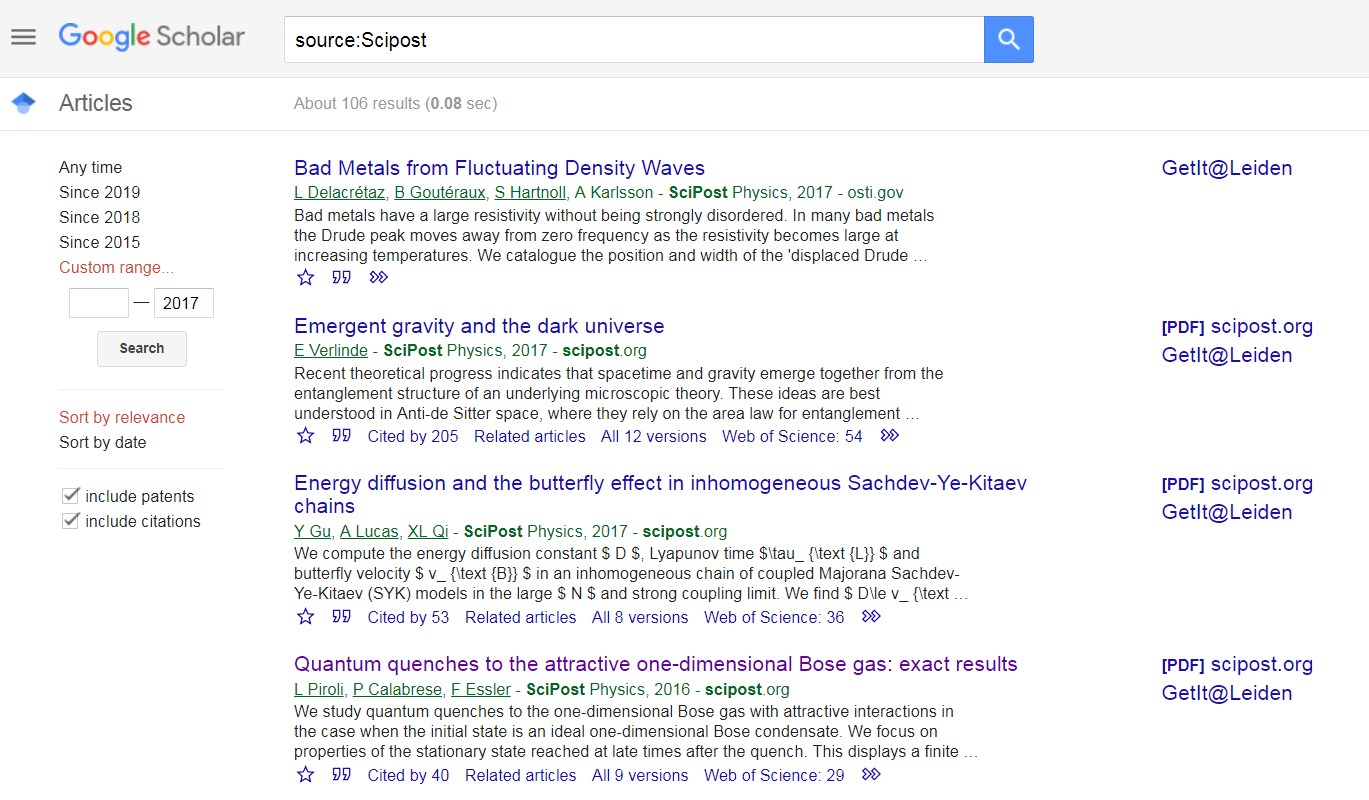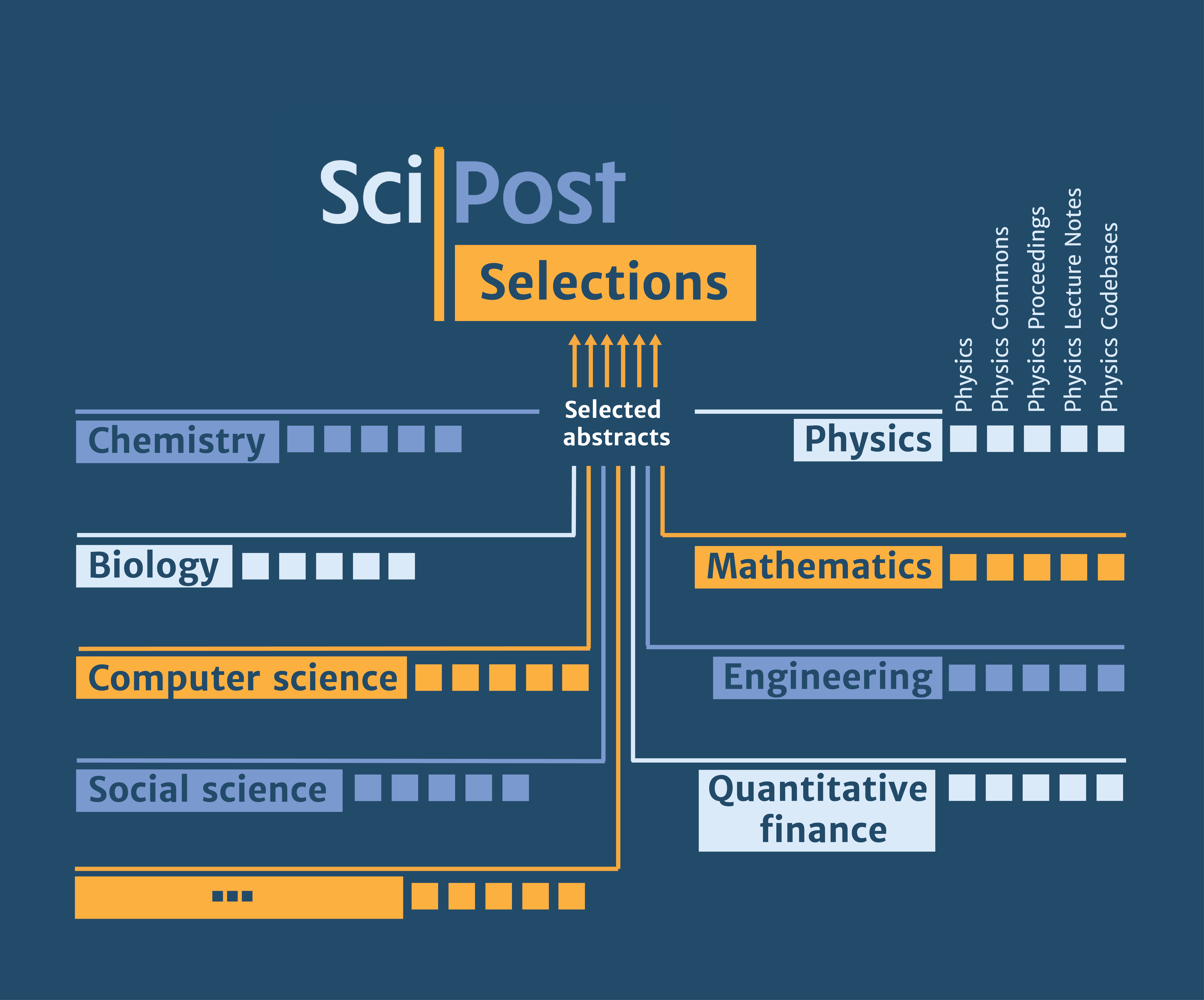Tougher than physics: SciPost sets the stage for Open Access
By donating 10.000 euro to the Open Access platform SciPost, Leiden’s Faculty of Science wants to make a real difference in the way scientific articles are published: open with a focus on transparency and quality without costs to author or reader.
Author: Rutger de Jong
By donating 10.000 euro to the Open Access platform SciPost, Leiden’s Faculty of Science wants to make a real difference in the way scientific articles are published: open with a focus on transparency and quality without costs to author or reader.
“There are many new Open Access initiatives, but the reason for me to support SciPost is the high number of citations and top authors they have already attracted”, says Carlo Beenakker while showing the citation scores of SciPost articles in Google Scholar. Beenakker, professor of the theory of condensed matter and member of the library committee of the university’s Science Library, decided to become one of the Editorial Fellows to support the initiative. He also made the case for financial support from the university’s Science Library funds to fellow members of the library committee, which has a representative from all disciplines within the faculty. With success, even though SciPost at the moment only has physics journals ̶ other disciplines are due to follow ̶ the decision to sponsor with an amount of 10.000 euro was unanimous.
Usually when a library signs a deal with a publisher, it either gets subscription access or a package of vouchers for publishing in the publisher’s journals. Things are different with SciPost: editorial and financial matters are strictly decoupled. There is thus no special treatment for Leiden authors; they have to meet the same criteria for publication. In this case the sponsoring is to provide a real benefit to the community as a whole, comparable to our sponsoring of Arxiv: Scipost’s contents are free to all and authors do not have to pay for publication.
400 euros
SciPost was started by Jean-Sébastien Caux, professor of theory of low-dimensional quantum condensed matter at the University of Amsterdam, who was frustrated with the traditional way of publishing in which scientists have to pay to be published or pay to read while they have done most of the work in creating the publication. With funding from NWO he started working on a new platform to make publishing cheaper and of a higher quality. “On average we calculated the whole editorial and publishing processes to cost around 400 euro per article”, Caux says. “Some papers are much more expensive than others, but so far this number seems to hold up and even allow for a small growth. Whether it is enough for other disciplines such as chemistry and mathematics is something we will have to experiment with.”
During conferences, Caux usually describes the learning process to start his own publishing platform as ‘even tougher than theoretical physics’. It is hard work to attract attention for the publications, create an intuitive system to work with, contract authors, get editors and sponsors on board and at the same time keep costs down. Much of the coding and lobbying for the platform was done by Caux in person. Currently he has just one full time member of staff, working on running and streamlining the editorial processes. Sponsoring such as from Leiden and other universities, will enable him to invest in infrastructure and pay people to support the administrative side of publishing. Even though he has done, and still is doing, a lot of work in his spare time, SciPost is not a one-man-journal, and professional-level archiving ensures perpetual accessibility of the published material. According to its website its articles should still survive the flooding of the Netherlands, or even Caux leaving for other projects.

Impact
Build it and they will come is not something that always plays out in scientific publishing. Authors are nervous to publish on new platforms, as they may be audited by the journals they publish in. Thus, Caux had to make sure that high profile authors set the example. Also, recognition by high quality indexes such as Web of Science is an important factor in attracting both readers and authors.
Thus far Scipost Physics has made it into the Emerging Sources Science Citation Index from Web of Science, an endorsement that their editorial processes are up to the database’s criteria. Inclusion into the Science Citation Index Expanded of Web of Science is possible now they have proven themselves to be of sustainable quality for 2 years. The controversial but important impact factor, which for all it is worth may still be considered a mark of quality, is also now computable, and SciPost is in touch with Clarivate about this. Caux, who is already involved in a follow-up project on new open metrics indicators, is not worried about the impact: “Judging from the current results, our articles are cited about twice or thrice the times of the average journals in physics. Our internally-computed impact factor is already greater than 5.”
Daring
Even as a startup journal without impact factor, SciPost has gained a lot of popularity within the physics community. At the moment already four articles from Leiden authors have been published at SciPost. Since its first journal was announced in 2016, the platform has received over 340 submissions.
According to Caux, this popularity is a direct consequence of the peer review procedure which he describes as peer witnessed refereeing. It is a mix of open review, public review and post peer review. “We work with openness for quality. Our fellows send out the article to referees, but they are not the only ones who can send in a review: the submissions can be read by all and if you register, you may send in your own report even if you are not invited. All of these reports are published openly, get their own DOI and can thus be cited. To ensure impartiality, the decision to publish is taken by a subset of 9 to 11 fellows from the Editorial College. Authors who ‘dare’ to enter this review process, in the end have articles that are much better quality because of it.”

Expanding
On its website SciPost futures a roadmap for the coming years that includes all STEM fields and the social sciences, complete with a multidisciplinary crown journal to compete with Nature and Science. All disciplinary branches should in the end consist of a generic highly-selective field-leading journal, a selective commons one, and if desired others for proceedings, lecture notes, codebase and the like. For physics this vision is ready, only the codebase and commons journals have yet to be released. “Once we reach a certain point and have enough endorsers, things can grow go quickly”, explains Caux. “We started in physics, but chemistry and mathematics are on their way, and we're looking at other fields. If we reach critical mass as soon as I think, it may be just a couple of months before we will announce journals in those fields.”





